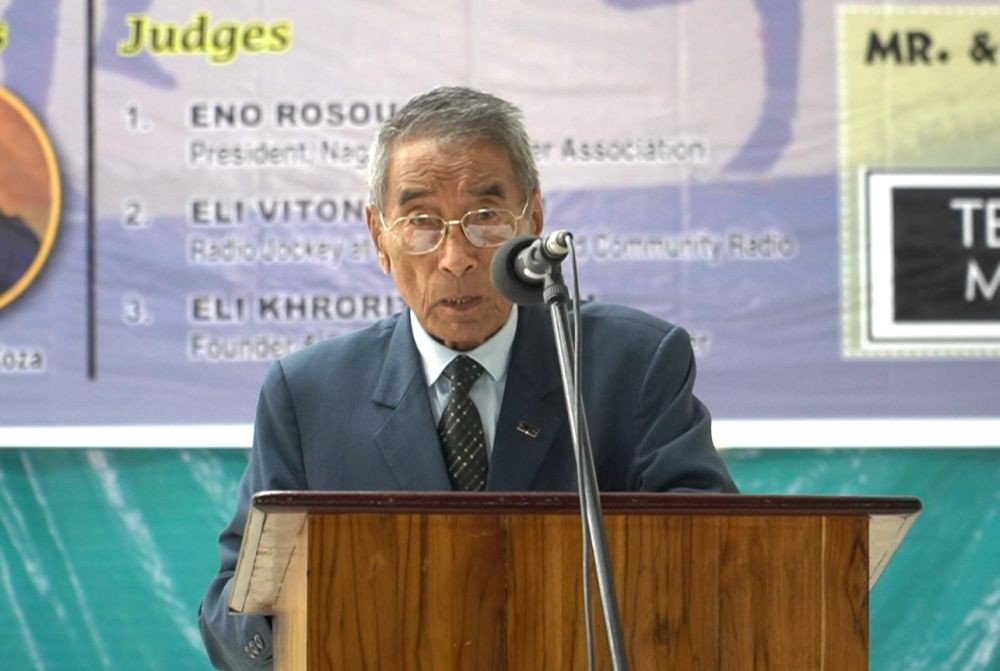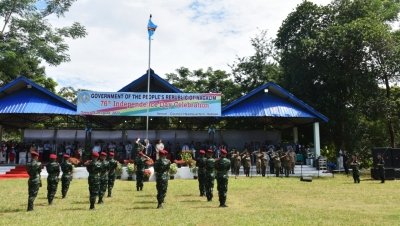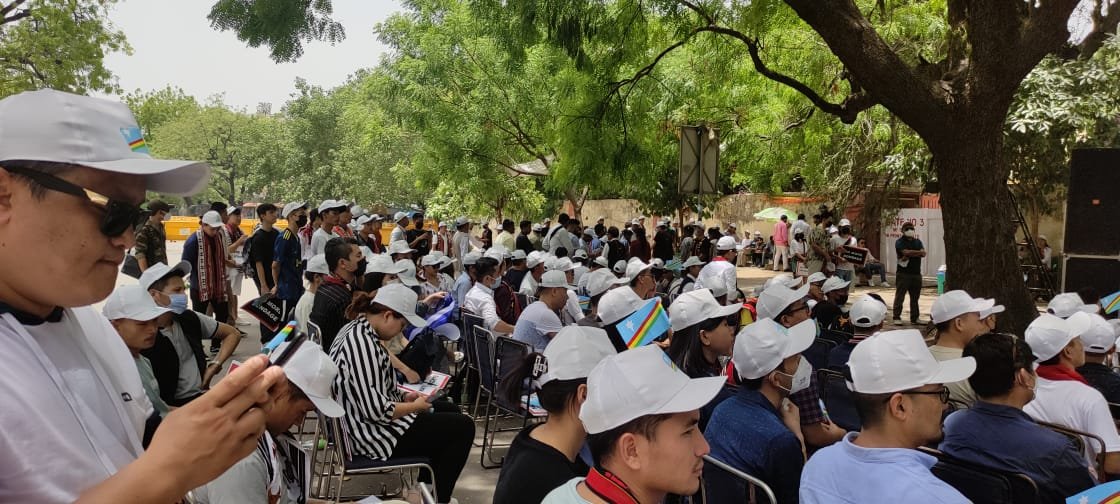HT Bureau
GUWAHATI, Aug 27: Former Nagaland chief minister Dr
Shürhozelie Liezietsu is of the view that the Naga indigenous
languages are gradually fading as people use other language
like Nagamese commonly to communicate.
“Nagamese, a lingua franca without grammar, will swallow the
indigenous languages in a matter of 30-40 years,” said Liezietsu
addressing an event of the Tenyimi Students’ Union Dimapur
(TSUD) on August 26.
Liezietsu, is currently the president of the Ura Academy, which
is the premier institution of the Tenyidie language committed
to preserving and perpetuating the Tenyimia culture.
He said that the Nagas should be cautioned of the looming
danger rather than regretting in the future. While aware of the
“looming danger,” he also admitted the contradiction of having
to speak in English in a gathering of Tenyimia students. He felt
that people need to work towards preserving indigenous
languages to avoid such embaressment.
Citing from Rev V K Nuh’s ‘Naga Chronicle,’ he said that the
Naga comprise of 64 tribes, including the Naga of Myanmar and
India, speaking different languages with some tribes having
more than one.
He said that the Rengma, which speaks two distinct languages
and which have been introduced at the elementary level.
Despite this, he said that young Rengmas having dearth of
mediums talk either in English or Assamese.
“As per the Government policy, text books have been prepared
in local languages and introduced in Nagaland schools at the
elementary level. But if it is as simple as that, are the planners
not creating barriers among our people?” he posed.
He further said that among the Naga languages, only Tenyidie
has been institutionalised as an academic language while the
rest have still to be organised as specialised medium of learning
and study at the University level.
The Ao language was expected to soon join Tenyidie in this
respect, but he regretted the other Naga languages do not have
the organisation at present.
While highlighting the development of the Ura Academy,
through the works of the early Christian missionaries, he
recalled the Academy’s application for including Tenyidie in the
8th Schedule of the Indian Constitution. He expressed hope the
Government of India will take up the matter.
On the implications of the Forest Conservation Amendment
Act, 2023, Liezietsu maintained that the amended Act would
create problems in Nagaland, a state where “the ownership of
land is peculiar.” In such a scenario, he added that it cannot be
accepted.
He said, “It (amended Forest Act) can be a law, but even law
cannot be imposed in a matter like this. Your land is your
property, your wealth. If your right is taken away over it, you
cannot remain silent because it is law. So, for the Nagas, this is
very dangerous.”
According to him, the state Assembly should pass a resolution
to reject the amended Act altogether. He replied in the
negative when asked if the erstwhile Forest Conservation Act,
1980, was at all effective in Nagaland.
He also opposed the move of the Union government to
introduce the proposed Uniform Civil Code on the same line.
“We cannot just take these things as the final, because time
may come when we can change by ourselves all these rules,” he
said.







